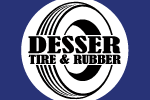-

Oh, and the coolant: Any standard 50/50 glycol/water mix is fine. They recommend straight "Evans Coolant" if your temperatures run high, and they seem to REALLY want you to use that stuff regardless, though they don't come right out and say it.
The benefits of the Evans Coolant include:
1. VERY high boiling point. Damage from "overheating" happens when coolant begins to boil around "hot spots" in the engine. The bubbles quickly disappear again, but that particular spot will get a lot hotter than the rest of the engine. Evans claims that engines can be set up to run MUCH hotter than normal without fear of damage because there will be no local "hot spots."
2. Evans coolant doesn't require high pressure to maintain its high boiling point. Even with zero pressure it still has a higher b.p. than a standard 50/50 mix. That's a neat safety feature if you develop a leak or something. Ordinarily, a loss of pressure means an immediate "boil-over" and complete coolant loss.
3. Evans coolant doesn't need to be changed. Ever. It has no water mixed with it, so there are no corrosion issues to worry about. Normal glycol coolant has additives to prevent engine corrosion, and those additives are gradually used up over time. (Hot water + metal = corrosion, unless there are sacrificial ions in the mix to protect the metal.) Evans coolant needs no such additives because there is no water in the equation.
-mickey
 Posting Permissions
Posting Permissions
- You may not post new threads
- You may not post replies
- You may not post attachments
- You may not edit your posts
-
Forum Rules

















 Reply With Quote
Reply With Quote